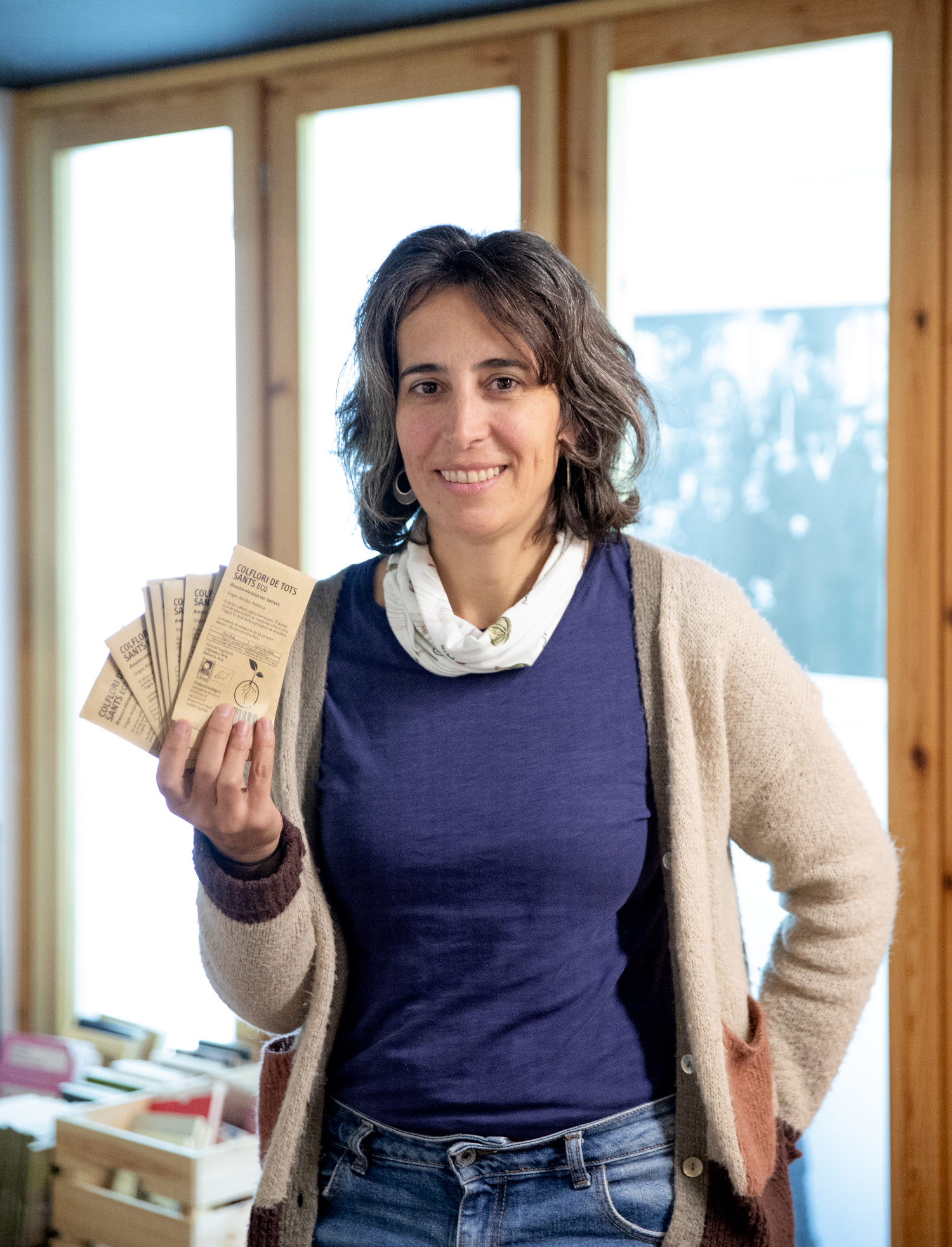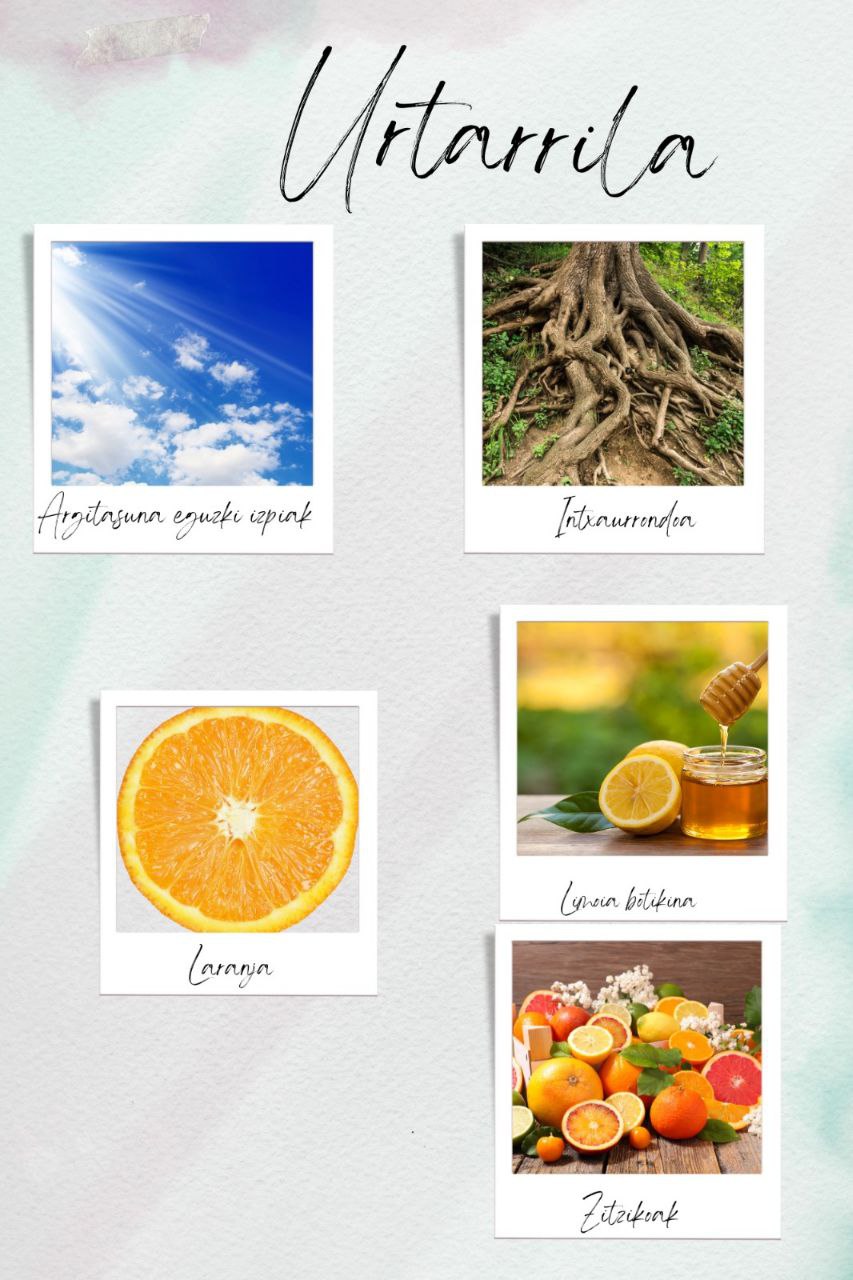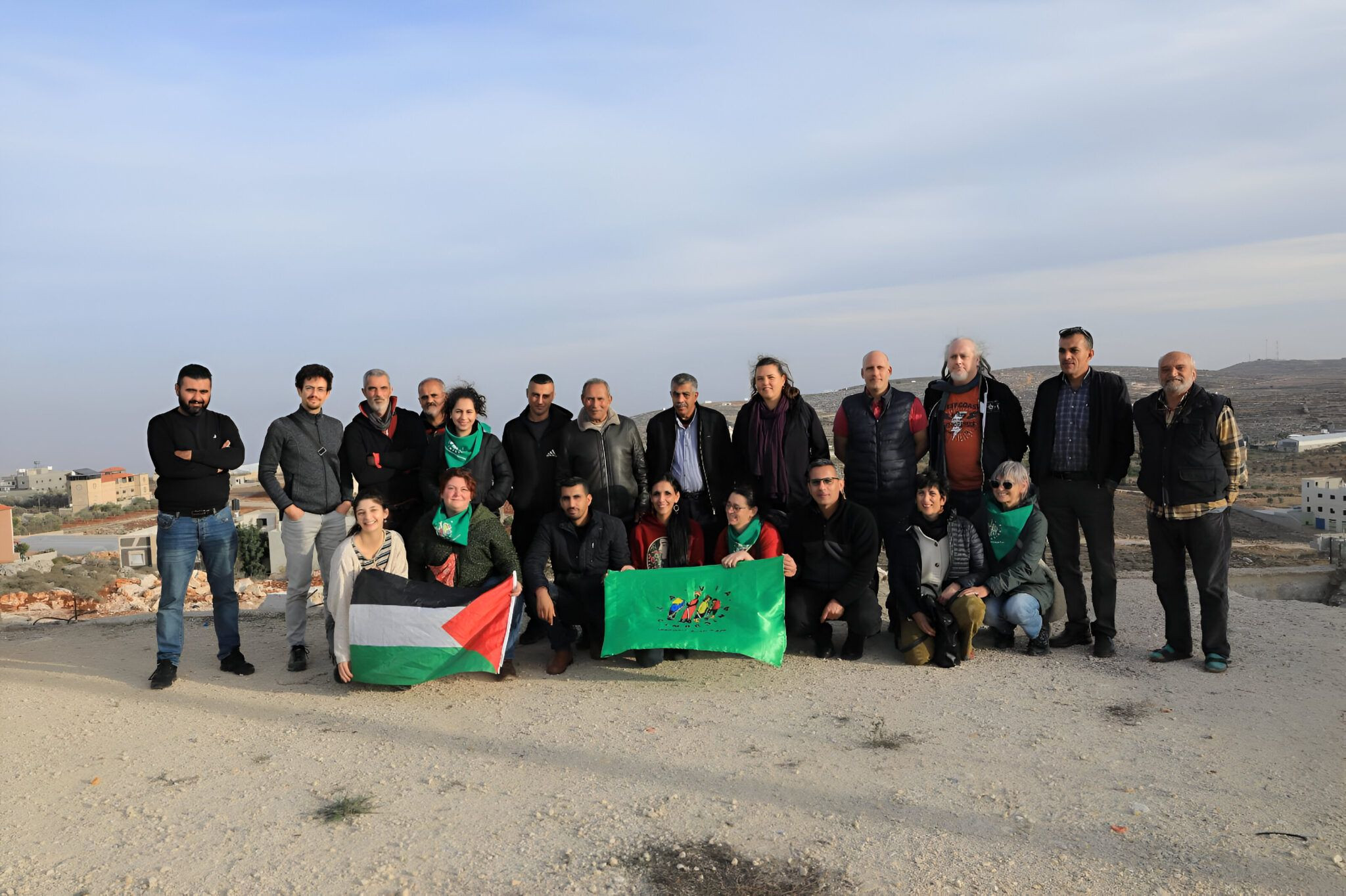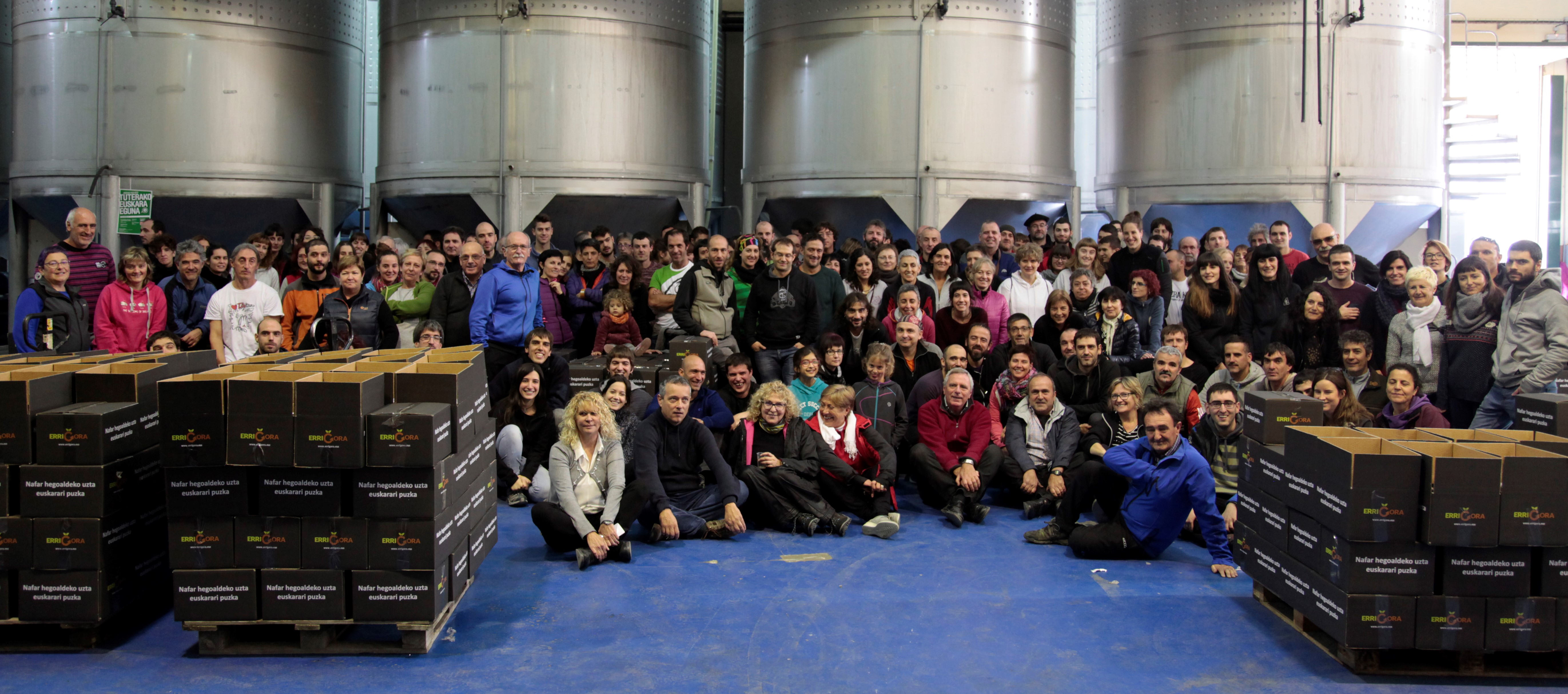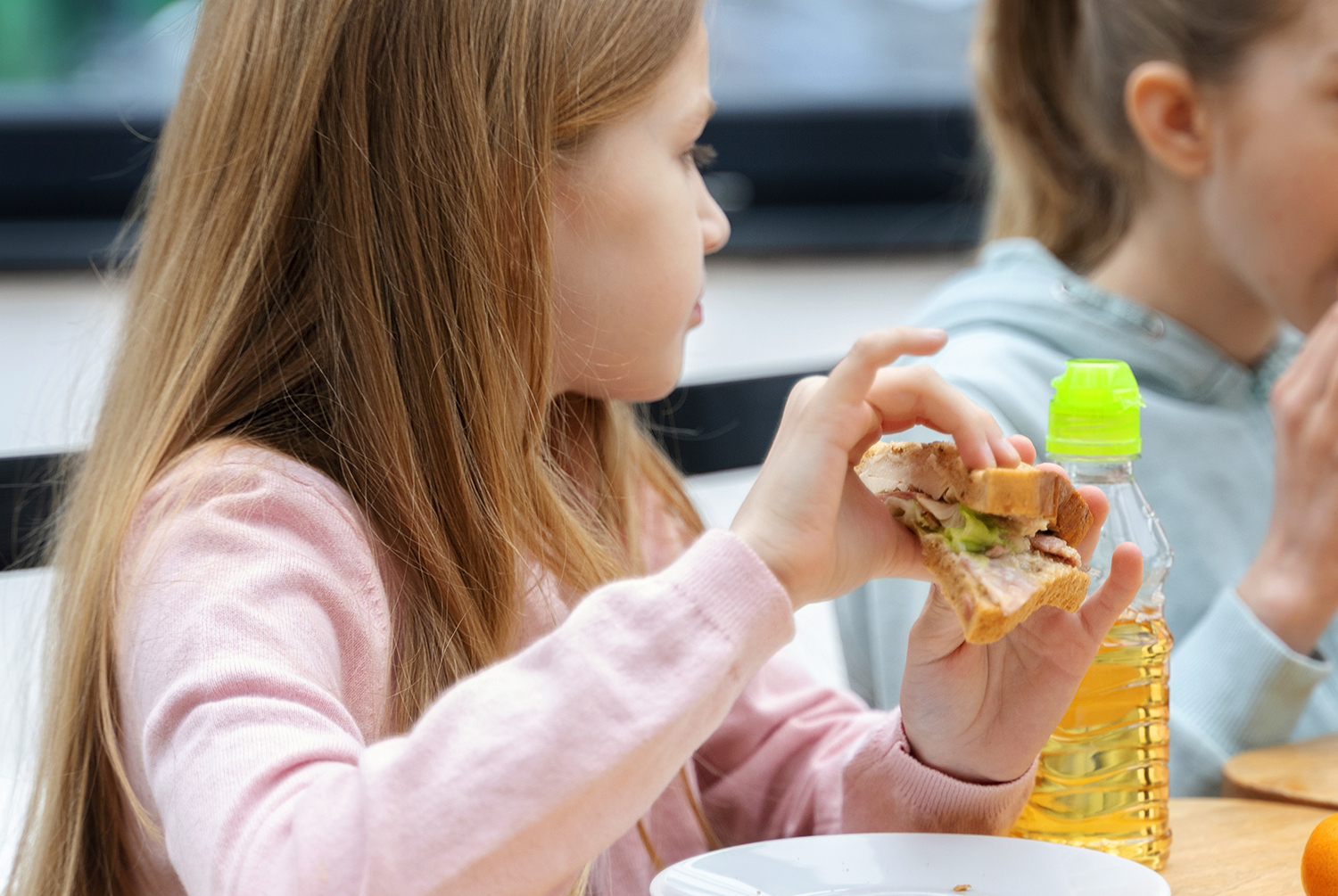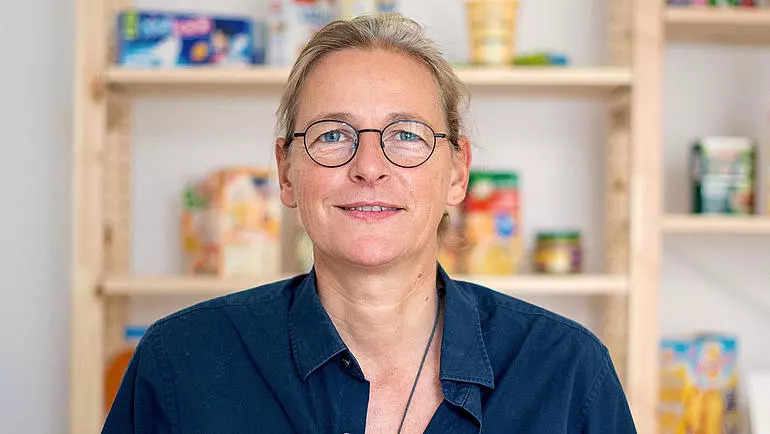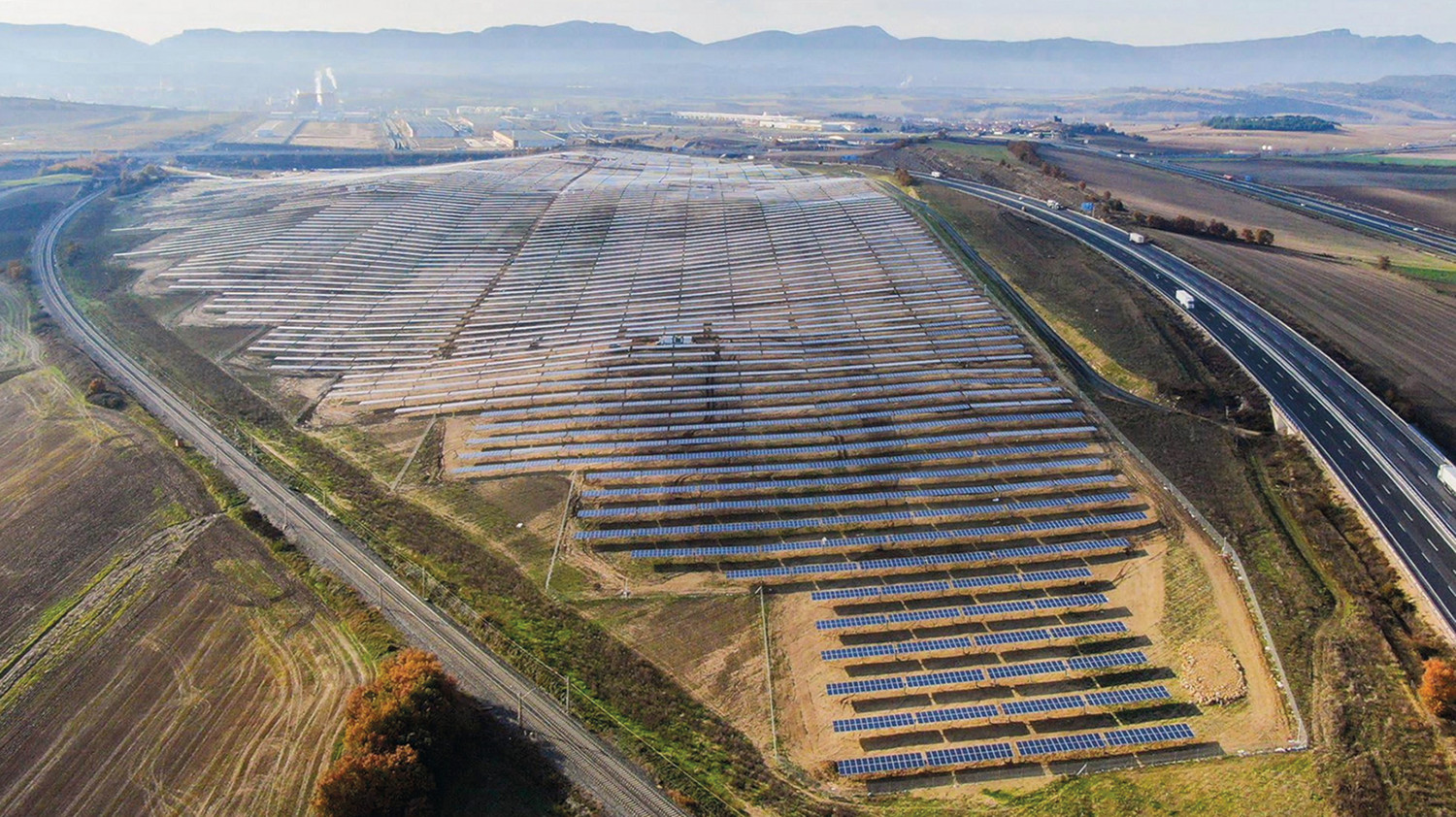“Whoever controls the fertile land will control the world”
- We've started talking about food and crisis with fruit boxes like chairs with a veterinarian, writer and merciless food activist who coordinates the journal Food Sovereignty, Biodiversity and Cultures.

The price of basic shopping is in the sky. Has the war in Ukraine aggravated the existing situation?
We are not wrong if we understand the war in Ukraine as a food war. Russia, the European Union, the United States of America and China want to control Ukraine, a territory with large agricultural capacity. As we know that the war in Iraq was for oil or that the negotiations with Morocco are for the fertilizers of the Sahara, the interest in Ukraine is that it has the most fertile lands in Europe. Talking about fertile land is talking about gold, it is a very appreciated good, it cannot be produced and there is less and less. Ukraine ' s desire for control is also through pipelines, and not least by the agricultural value of its territory.
They do call it the “European barn”.
When the first confrontation began in 2013, Europe was trying to agree with Ukraine on a free-market treaty to guarantee its barn. The Ukrainian president of that time was more Russian and refused to sign. Then the internal conflict broke out and the new European President arrived. Europe made moves to destabilise the territory that did not remember what it wanted. At the same time, Russia conquered the Crimean Peninsula. They both wanted to control the land. Europe did so through diplomacy and Russia did so with the invasion. China also acquired a land equivalent to the expansion of Galicia and EE.UU. sent multinationals such as Cargill and Monsanto to carry out future deals, i.e. to purchase the following crops. The shortage of fertile land is a reality and poses a problem of planetary feeding. Whoever controls fertile land will control the world.
What are the effects of Ukraine not currently exporting cereals?
It is important to note that the pre-war harvest broke the records. According to the Ministry of Agriculture of Ukraine, 46.51 million tonnes of cereals were exported, six million tonnes more than the previous year. The shortage of cereals in some countries in the south of the world is due to the rise in prices, which has skyrocketed by pure speculation. Investment funds play a role in betting on cereals, speculating with fear of what might happen in the future. And it is true, for structural reasons, that food continues to grow more expensive, but the spark is speculative. Together with cereals, the prices of fertilizers, which are derived from natural gas, have risen, and Russia is a major producer of gas. These two increases affect production costs. For example, in the case of Catalonia, most farmers produce cereals and land works with fertilizers. Their costs are therefore multiplied by three. At the same time, prices have risen to the other big sector in Catalonia, intensive livestock farming, where pigs live and we have so much because we have to import feed. On the other hand, the installations consume a lot of light and this has also become more expensive.
Of course, the energy crisis is also there. To what extent does the current food system depend on limited fossil fuels?
The energy crisis has a major impact on the prices of industrial farming and livestock farming. They need oil throughout the production process. Firstly, oil is necessary to produce fertilizers and pesticides. At the same time, reapers, for example, absorb a lot and are necessary to move the goods. It must be borne in mind that agrofuels need to spread mononculous soya, maize or palm, particularly in the countries of the South, where the small farmer is expelled from their territory. Agriculture and industrial livestock depend on the limits we have exceeded and are therefore in collapse. By this I mean that without war we would be on the same dead end street.
He talked about the importance of fertile land, and fertilisers and pesticides destroy it ...
Collapse means “sum of lapsus.” That is what we have, a link of errors, and a serious mistake is to remove from the earth an extensive microbial life. The roots of the plants not only collect food from the soil, but have a bilateral relationship. That is, plants emit oxygen into the atmosphere and take CO2 that feeds on the underground microbes that descend from their roots: attached to the roots is a complete microscopic zoo. These microbes are fed by the carbon provided by the plant and, in return, they provide the plant with a number of underground elements. That's how life works, the secret is invisible, and it's buried where everything happens. We put an end to oil, fertilizers and pesticides. For example, there are no bees that help pollination anymore, because pesticides kill them. In order not to lose the fertility of the Earth, it is enough to respect the cycle, the fertility of the Earth is a rich and infinite system. But we haven't respected it, and now we have a finite system that kills. If the microbes die, the carbon that the plants provided to them ends up in the atmosphere.
Therefore, can technology not replace natural processes and transcend the limits of resources? Referring to his last book, what are the stories that tell us in the name of progress?
In the book Tales of Progress, I ask a Pastor: What would you do if you could decide where Next Generation European funds are going? He answers. “The problem isn’t that money?” The first myth is to think that with money we fix everything. All the answers we are giving are related to investments, we solve everything with the look of homo economicus. The first question we have to ask is: Surely we have to invest? Sometimes the key is to divest. Then, of course, you have to decide what to invest in. Biodiversity is very necessary and irreplaceable, has a role and maintains the cycle. We're breaking cycle levels, and technology can't remake that. Renewables are not ineffective, they depend on limited mineral materials like oil. In addition, they destroy the territory, but they can only replace 20% of the energy we spend, electricity. With electricity, the land is not paid, we cannot transport the soya or move the reapers. We cannot talk about alternative energies if we do not face it without a debate about the excess energy that our model of civilisation uses and without asking ourselves what energy we use. The first job is to banish the conviction that we are a privileged animal or with more rights than others.
You mentioned food speculation earlier. How do bags, such as those in Chicago, where soy, wheat, livestock, milk and metals are quoted?
It speculates about contracts. To be understood: they ask a farmer how much the harvest is paid and offer him a three-year harvest for one more euro. The farmer decides to buy in order not to run the risk of lowering the price. Anyone who has bought the harvest of the future from the farmer goes to the stock market with the contract and another buys him at a higher price, because according to the circumstances an increase in the price can be foreseen. So it will speculate on a contract whose price is rising artificially. In the years 2008 and 2009 it was expressly measured that there were many risky investments in cereals and that prices had to be raised.
Jennifer Clapp, vice-president of the UN food safety panel, has also said that governments have failed because they have not paralysed excessive speculation. Who is this speculation good for?
Basically, the food system is controlled by investment funds, which are the ones behind large companies such as Bayer or Monsanto, which are listed on the stock exchange. The sector is moving a lot of money and in agriculture there are still large companies from families that occupy an important place in the ranking table, such as Cargill, the main grain trader. Fourteen family members who control Cargill have fortunes of over one billion dollars. The role of states in speculative investment in food must also be taken into account.
Is the food system based on accumulation? Without transparency and public control?
There is administrative deregulation that benefits businesses. In addition, the Community agricultural policy (better known as the CAP) is favourable to agro-industry. The Generalitat of Catalonia has a highly dependent attitude towards the large pig corporations and all the investments and projects of the agro-industry are supported, for example, by the extension of the port to take more potash (chemical fertilizers), or by the construction of infrastructures for the soya to reach the great thinkers. At the same time, they hinder anyone who wants small-scale agriculture.
Is it possible that food is more sustainable, egalitarian and resilient?
Yes, but there are a lot of insufficient people. The departments are well aware that this model is untenable, that Catalonia is vulnerable, that we have put our feet in the hands of oil, and that the underground and biodiversity are over. But we have a democratic system, a governance, which is not prepared to make the necessary changes. Courageous political attitudes and disobedience are needed to get out of the wheel. If the ruler thinks in the short term, with elections being the horizon, what we see are corrupt responses, to pretend. There are no daring answers when you know very well what to do.
What needs to be done?
There's food, but a lot of people can't get it and they're hungry. At the same time, 40% of what is produced is thrown away. Therefore, the current model does not work. The problem is that it has been accepted that food is a travelling commodity attracted by magnetic forces, where there is more purchasing power. The whole agricultural system needs to be reconverted. 80% of the population of Catalonia live in 2% of the territory and farmers do not reach 1% of the active population. At present, Catalonia focuses on pig farms, which has an impact on the environment and contributes to the three quarters of the agricultural land of Catalonia being used for cereal, for saws. We don't produce lentils or chickpeas or peas because there's cereal. The first thing to do, therefore, is to reduce pig farms and turn them into large small farms, and that these animals eat what people do not eat. Reduction of the pig industry and increased production of sheep, cattle and goats. Only for that reason would a lot of land be released, because you don't need to produce cereals to feed pigs and you can use cereals to people. At the same time, if you collaborate with this with land reform, a lot of work is added in hand. There will be agriculture, because if we have people in the field, we cannot rely on oil. This is reasonable and feasible. Many things can be done throughout the transition. For example, the land can be expropriated to the company Tarradellas for its general interest, because all the reservoirs are being contaminated, and farmers could be added. At the same time, I believe that farmers should be civil servants or receive a universal basic income. They should be protected, not depending on the market, such as a doctor or a teacher, and food prices should be set. Political courage is needed.
Should our diet be adapted?
Yes, because at the moment we are doing very badly. We are the only animal species that we believe we have the right to choose our diet. Swallow doesn't choose, it's an insectivorous; the cow doesn't decide to be a herbivora. Not choosing at all times what we eat implies a balance for the producer and the land, which is now, for example, ready to give tomatoes. There can be no excessive quantities of meat in diets, but we have to cultivate herbivorous animals, because in the system of the earth its work in the food circle is very important: the livestock movement treads the land, which does not stop growing in the feces and causes the microbes to return to the plants with reflection. Without herbivorous animals, the cycle breaks. Radical veganism that criminalises farmers takes the animals out of the loop, when they are part of the ecosystem. We must restore extensive livestock farming and protect the farmers, who are the ones who care for and produce the land. We too must be part of the life cycle.
Emakume bakoitzaren errelatotik abiatuta, lurrari eta elikadurari buruzko jakituria kolektibizatu eta sukaldeko iruditegia irauli nahi ditu Ziminttere proiektuak, mahai baten bueltan, sukaldean bertan eta elikagaiak eskutan darabiltzaten bitartean.














